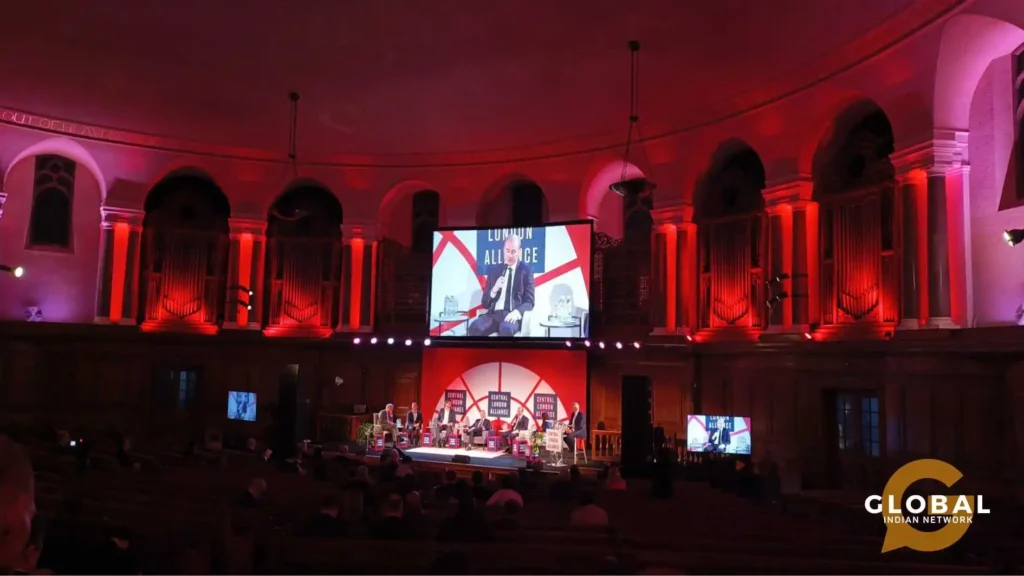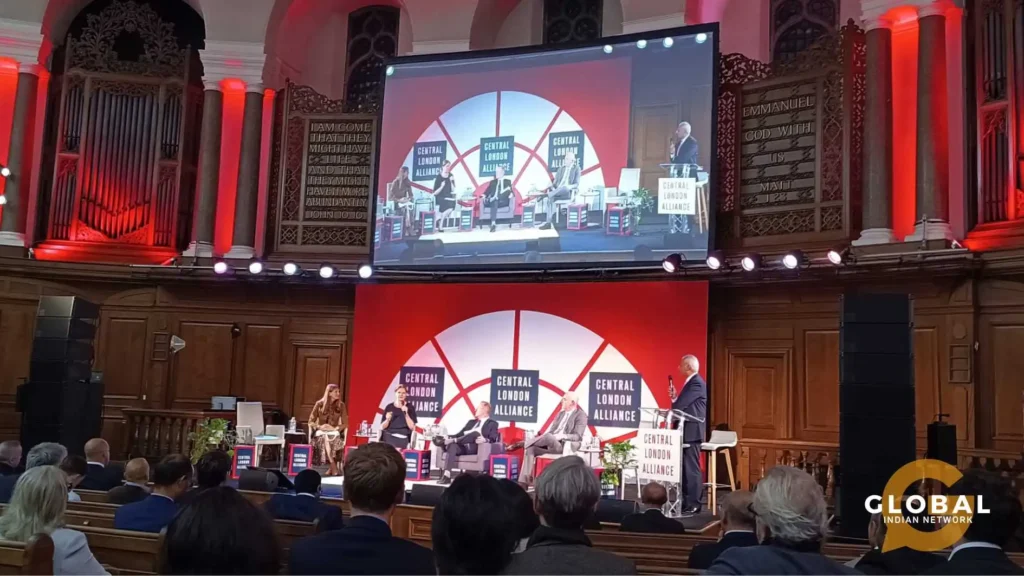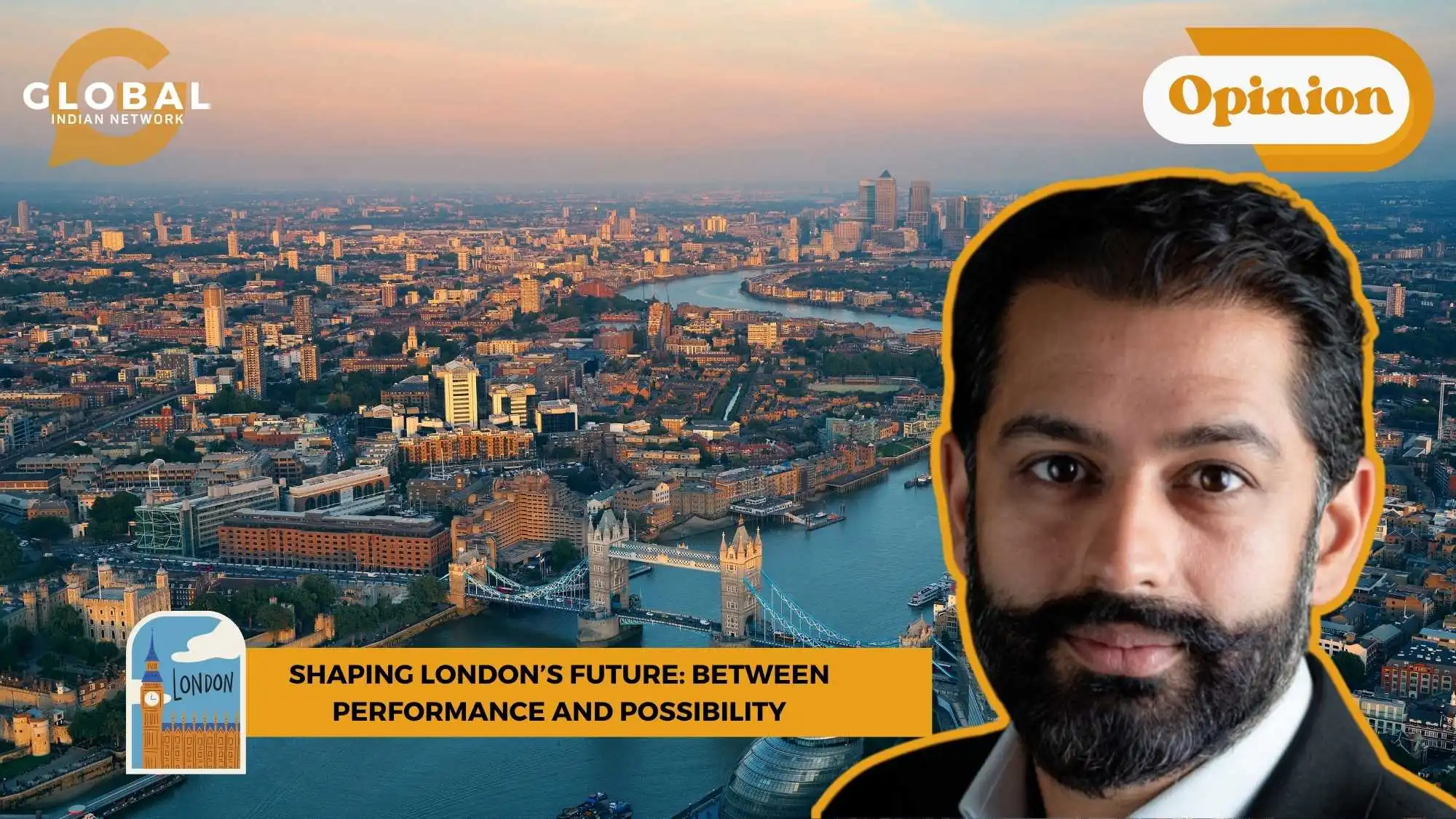There’s a pulse you can feel when a room full of London’s power brokers gathers to debate the city’s future. I felt it the moment I stepped into Shaping London’s Future, chaired by Tony Matharu of the Central London Alliance.
It wasn’t just a conference. It was a mirror. A mirror reflecting a city wrestling with its own reflection, unsure whether it still recognises itself.
The air was thick with ambition, intellect, and that uniquely London mix of confidence and quiet anxiety. On stage, a line-up of heavyweights tackled the capital’s defining questions: the economy and environment, finance, hospitality, property, and planning. Each theme could have been a summit on its own, yet together they formed a mosaic of a metropolis caught between nostalgia and necessity.
But amid the sharp suits and polished phrases, I couldn’t shake the feeling that parts of it were theatre. A few speakers performed the familiar routine of criticising government policy while ignoring the legacy decisions that created today’s challenges. It is an easy applause line. Blame the leadership, and people will clap. But London’s crisis is not cyclical. It is structural.
Still, between the rehearsed lines came rare flashes of honesty. The kind that makes a room fall silent for a moment and reminds you why these conversations matter.

The Vanishing Wealth of a Global City
One of those moments arrived when someone shared a figure that landed like a grenade: more than sixteen thousand millionaires leave the United Kingdom every year.
That is not a statistic. It is a warning flare. These are the people who quietly bankroll much of the city’s ecosystem through taxes, philanthropy, investments, and jobs. You don’t have to like the number to understand its impact. When capital leaves, creativity follows.
We love to talk about inclusivity, and rightly so, but inclusivity without investment is performance art. If the city’s financial oxygen keeps leaking, every borough will start gasping.
The Labour government often speaks of helping the average Londoner. Yet the entrepreneurs in that room described a different reality: rising business rates, hidden levies, and mounting bureaucracy choking the very people who keep London’s lights on. Without them, the city risks becoming a showroom without an engine.
It made me wonder if London has started confusing being busy with being prosperous.

A City Losing Its Shine
Travel gives perspective. Across Africa, Asia, and the Americas, people still speak of the United Kingdom with respect, but the tone has changed. London, once shorthand for opportunity, is now spoken of with cautious curiosity.
Not long ago, a head of state in the Caribbean messaged me after seeing footage of protests. “Are you and your family safe?” they asked. It was a kind question, but quietly devastating. The world that once looked to London for stability now worries about its volatility.
Elsewhere, I have heard a running joke: “Don’t worry, here you can walk around with your phone.” It is said playfully, but beneath the humour lies truth. London’s glow is dimming.
When jokes about safety replace stories about innovation, something profound has shifted. Once admired for its reliability and sophistication, London is increasingly seen as unpredictable, overpriced, and, for too many, unliveable.
Perception is a currency, and right now, London’s is losing value.
Where Hope Still Lives
Despite all that, the event was not without light. Under Tony Matharu’s calm and determined chairmanship, the dialogue stayed balanced: optimistic without being naïve.
Tony has always been that rare bridge between business and government, ambition and accountability. That ethos shaped the panels. People offered genuine solutions. Smarter tax models to retain talent. Reimagined planning frameworks to unlock housing. Tourism revived through storytelling and sustainability. Culture leveraged as capital.
It reminded me of something simple yet profound. London’s greatest export has always been its ability to reinvent itself.
The question is not whether London can bounce back. It is whether it will choose to. Reinvention demands discomfort. It calls for leadership that listens, that builds, that dares to step beyond slogans and into reform.

Between Nostalgia and Necessity
There is a certain nostalgia haunting long-time Londoners. We remember when ambition was an atmosphere, when this city felt like the place you came to build, belong, and become.
That energy is not gone. It is only buried beneath red tape, fatigue, and a fog of mediocrity.
But nostalgia is only useful if it fuels reform. The people in that room, the entrepreneurs, the planners, the optimists, are not done yet. They see the cracks but also the blueprint for renewal. A London that learns from its past without being trapped by it.
The collective mood was one of wary determination. An unspoken admission that yes, the ground is shaky, but it is still worth standing on.
London has survived the Great Fire, the Blitz, recessions, and Brexit. The difference this time is that the crisis is internal. It is complacency, over-politicisation, and the loss of collective confidence.
This is not about rebuilding infrastructure. It is about rebuilding faith.

A Personal Reflection
As someone who made London my adopted home, I left the event carrying two things: pride and fear.
Pride, for a city that still dares to debate its destiny. Fear, for what happens if we keep mistaking talk for progress.
If policy remains performance, if investors keep walking, and if ordinary Londoners continue to feel alienated from their own city, the consequences will be generational. And that is before we even confront the toxic nationalism seeping through the boroughs.
Yet I am not cynical. Not yet. Because as long as spaces like this exist, and people like Tony keep building bridges between voices that rarely meet, there is still hope.
Shaping London’s Future was not just an event. It was a challenge. To business. To the government. To every Londoner who still believes this city is worth fighting for.
London’s story has always been one of resilience. But resilience alone is no longer enough. When we talk about shaping the city’s future, we cannot just polish its image. We must protect its soul.
And that soul, now more than ever, is the global heartbeat that calls this city home.

Let us know your thoughts. If you have burning thoughts or opinions to express, please feel free to reach out to us at larra@globalindiannetwork.com.









